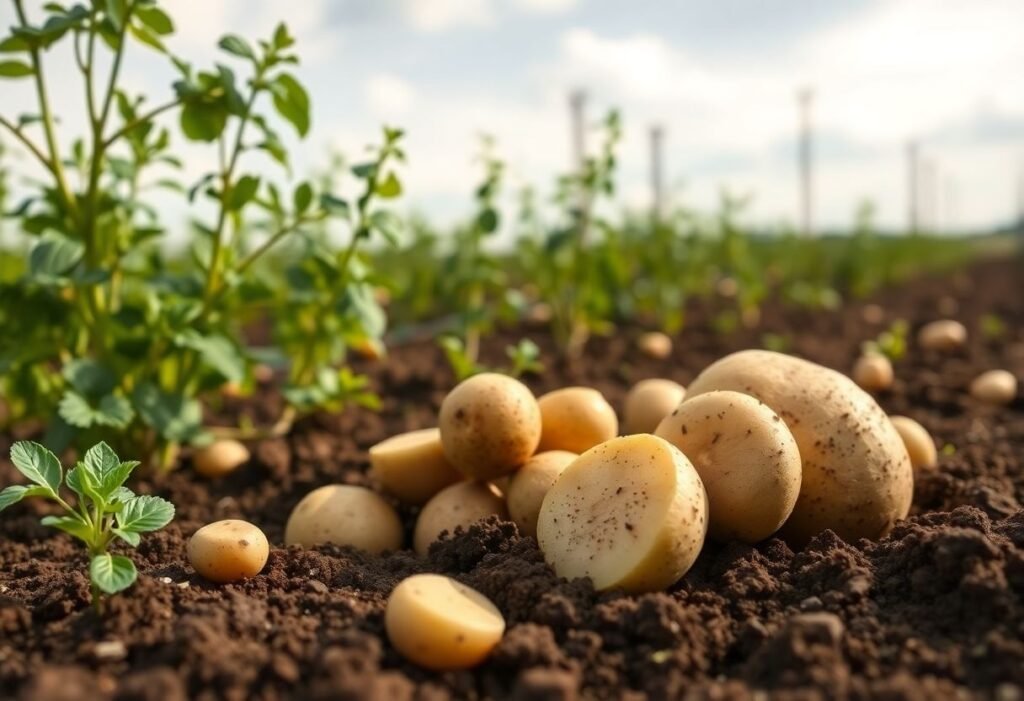Why Fertilizer is Key?
Fertilizer plays a fundamental role in potato cultivation. Proper fertilizer for potatoes delivers essential nutrients like nitrogen, phosphorus, and potassium to the plants. These micronutrients are vital for healthy growth and good taste of the tubers. Without fertilization, potatoes can turn out small, flimsy, and lackluster in flavor. It’s important to understand how to influence soil acidity and its overall health to ensure a successful harvest.
Types of Fertilizers for Potatoes
There are various types of fertilizers for potatoes available on the market. You can choose between organic, mineral, and multi-nutrient fertilizers. Organic fertilizers like compost or manure enrich the soil naturally. On the other hand, mineral fertilizers, which you can find in stores, focus on specific nutrients, such as nitrogen, which promotes leafy growth. Choosing the right fertilizer is critical for the health of your potatoes.
When to Fertilize Potatoes?
Timing of fertilization can be crucial for success. It’s best to apply fertilizer for potatoes just before planting and during the growth season. The first application should occur during planting, so the tubers can immediately benefit from the necessary nutrients. Additional fertilization can be done when the plants reach a height of about 6-8 inches. Regularly monitoring soil conditions and plant reactions allows you to adjust your fertilization strategies accordingly.
How to Apply Fertilizer for Potatoes?
The application method can vary depending on the fertilizer type. For organic fertilizers, spread them evenly around the plants and then incorporate them into the soil. Mineral fertilizers are best dissolved in water and used as a liquid feed. Be sure to follow proper ratios – using too much fertilizer can harm the plants! Keep an eye on their reactions as well as leaf color changes to assess the effect of fertilizers used.
Are Natural Fertilizers Better?
More and more gardeners are starting to appreciate fertilizers for potatoes based on natural ingredients. Organic fertilizers, like compost, not only supply nutrients but also improve soil structure. Natural growing methods have many supporters, as they are more eco-friendly. Although the process of natural fertilization may take longer, the results are often more satisfying and sustainable.
Conclusion
There’s no doubt that the right fertilizer for potatoes is essential for the success of any garden. Experiment with different types of fertilizers to find the best fit for your garden. Remember, every garden is different, and the right fertilization practices can be key to your success! Don’t wait – take care of your potatoes today and enjoy the flavor of your own harvest.
Disclaimer
This article is for informational purposes only and does not replace professional advice. Always consult an expert before applying fertilizers in your garden.

















